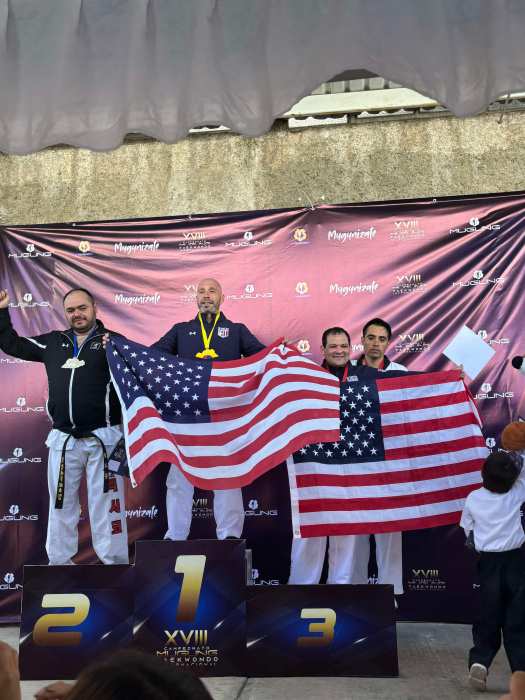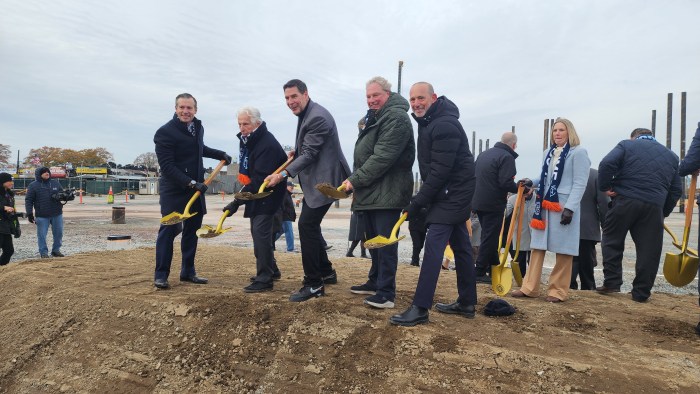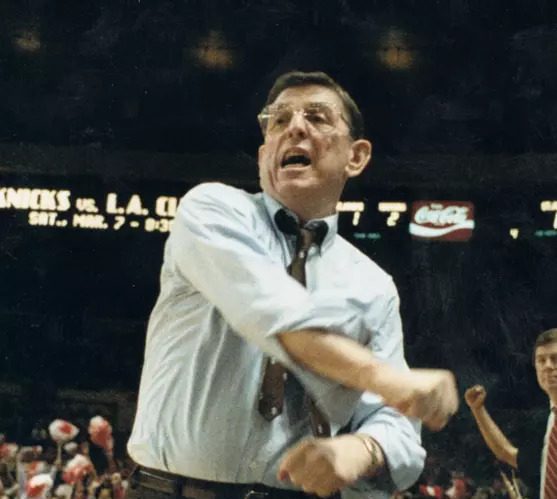A trio of early-season personnel adjustments have, at least for now, changed the faces of three of Queens’ most prominent high school basketball teams.
Christ The King’s Bob Oliva, whose heart ailment caused him to hand the reins of the boys’ team over to athletic director Joe Arbitello and a team of assistants at the start of the 2008-09 season, has made his leave of absence permanent. Francis Lewis’ Michael Eisenberg, accused of verbally abusing a student, has now spent four weeks reassigned from his teaching job while guidance counselor Stephen Tsai has stepped in to helm the girls’ team.
Finally, Mary Louis’ Joe Lewinger, who since early December has been scaling back his head coaching involvement to spend more time with his family, decided on December 31 that he would make his leave of absence official. His three-year-old twins, Madison and Jack, are facing cancer.
“The fact of the matter is, with Maddie and Jack’s CT scans in February, I just couldn’t deal with this anymore, hanging over their heads,” Lewinger said. “It just wasn’t fair to our family. On New Year’s Eve, I said, ‘This was it.’ ”
Madison’s cancer was more developed, and she appeared to have lesions on her lungs long after her last treatment of chemotherapy. But on Monday, January 12, Lewinger reported some new optimism with respect to his daughter’s condition.
“They believe there is scar tissue, which would [lead us to] believe that she might have beaten the cancer and it’s just scar tissue,” he said. “I’m nervous, but I’m hoping for the best.”
Lewinger still serves as the Mary Louis Academy’s athletic director, but Kevin White, an AAU coach who knows some of Lewinger’s players and was hired as an assistant this season, has assumed coaching duties. Lewinger now gets home at 5:00, which was “unheard of during the basketball season.” Only at his girls’ home games must he, in his role as athletic director, be in attendance.
“Kevin White is a magnificent coach, and he is also a fantastic person,” Lewinger said. “Everything was seamless, I would say. He did coach some of them in AAU, and he’s very approachable, very knowledgeable about the game. He does care about the kids, so I don’t think it was really too dramatic. … If you look at the whole month of December, you can see that I basically started to scale back more and more, so it didn’t really hit [the players]. It kind of hit them that I’m not going to do practice, for instance, or be at most of the games.”
It kind of hit Lewinger, too. On January 6, when the Hilltoppers played Bishop Ford in their first game of the league season, he learned what it feels like to watch with detachment, a team that he had followed up-close for eight full seasons.
“It was weird. It really was weird,” he said. “It was the first time in nine years that I’ve really watched the team from the sidelines. It’s one thing to allow an assistant to coach, which Kevin did do. Kevin actually coached a game against Woonsocket. But I’ve never been not a part of anything. It was really weird. You try to keep your facial expressions to a minimum. You make sure you cheer as much as you can as things go well.”
Lewinger is surely not alone in the surrealism of a coach’s detachment. Eisenberg, awaiting formal charges from the New York City Department of Education, has been spotted in the stands with family while the talent-filled Patriots have coasted to a division-leading 5-1 league record. Oliva, the legendary owner of 549 career wins, attended his first CK game on December 21 versus Xaverian but has largely stayed out of the spotlight as his own controversial story begins to build.
Surely one cause of Oliva’s heightened stress was a letter he received in May 2008 from attorney David Ristoff. The letter alleged that Oliva had sexually abused Jimmy Carlino, the son of a family friend, when Carlino was a teenager more than 30 years ago. It stated that Carlino would accept $750,000 and Oliva’s immediate resignation as a settlement, in exchange for confidentiality.
“As you can imagine, Mr. Carlino has suffered significant psychological damage that has effected [sic] every aspect of his life and career,” the letter reads.
On January 4, the New York Daily News reported that Oliva had decided to retire - and, citing an anonymous source, that two former players also reported having been sexually abused by Oliva. Oliva, who has strongly denied the allegations, has since been greeted with a wave of supportive statements from former players and opposing coaches, as well as from Arbitello. The athletic director, however, did not return a call for comment on this story.
Without Oliva, the Royals have slightly altered their style of play. A more aggressive, up-tempo style, both on offense and defense, characterizes the 2008-09 team.
“One thing Bob Oliva always said: ‘When you’re going to coach a team you have to coach a team the way you coach,” assistant coach Greg Lemko told The Courier after an early-season win over Van Buren. “Right now Bob is not here and we can’t coach the team the way Bob would coach a team.”



































